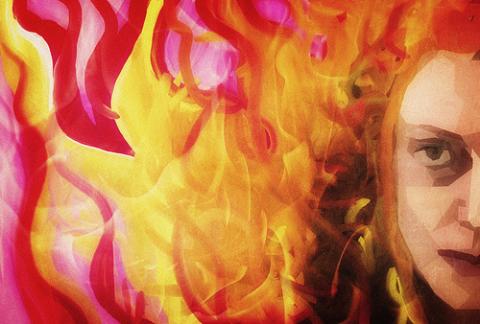Phone hacking scandal: A drama of Shakespearean proportions

The phone hacking scandal has all the trappings of a Shakespearian drama, writes Paul McElhinney.
Many of Shakespeare’s tragedies involve the key players ending up dead on stage. In the phone hacking scandal so far, two of Britain’s most senior police officers, the CEO of News International and a senior executive of News Corporation, have all resigned and a former News of the World journalist central to the drama, has been found dead – a high casualty level.
Adding politics to the mix, hounds have also been barking at David Cameron’s door for his past associations with Rebekah Brooks and Andy Coulson. The result has been a story of an unholy alliance between the media, politics and the police, not in a Third World banana republic, but in a country priding itself on being the home of modern democracy. There is little to indicate that the whole Shakespearian drama is set to reach its denouement any time soon.
At one level, it is unsurprising that such cosy relationships between the media and politicians have been brought to light. That relationship can, at times, be symbiotic, sometimes antagonistic. What is disturbing about the current scandals are the allegations of breaches of the criminal law, the scope of involvement of the police and the depth of penetration by media executives into the British political establishment. It is impossible (and unfair) to come to any definitive conclusions yet, against a background of ongoing inquiries, parliamentary hearings and possible criminal prosecutions. How far this will go and where it will all end, is anybody’s guess.
All these events have the capacity, however, of becoming Britain’s Watergate scandal, but with one difference: the Fourth Estate (or at least, one key part of it) is at the epicentre. Whatever the ‘endgame’ of the whole affair, the intense mood music created will ensure the media playing field will change significantly in the direction of some form of tighter regulation and protections of privacy. News Corporation’s brand of journalism has been exposed and found to be severely flawed. The whole industry will have to pay for its mistakes.
It would be a pity, however, if the kinds of activities immortalised by Woodard and Bernstein, of holding the powerful to account, were to be emasculated by any new media reforms, however well-intentioned. In such febrile times, it is even more important for policy makers to retain cool heads and ensure maintenance of a fair balance between rights of privacy and rights of a free press. Like in Northern Ireland during the Troubles, simply reacting to the latest atrocity makes for bad policy.
To those citizens who believe that their votes matter in a democracy, the image of a Rupert Murdoch entering 10 Downing Street with ease (whether through the front or the back door), and having access to power in a myriad of other ways, is abhorrent. For politicians in Britain to be seen fawning over media moguls with hard-nosed commercial agendas is demeaning to themselves and to democracy.
Like under the Westminster expenses scandal, this issue has touched a raw nerve among the British public. The public will demand reform and, supported by the more responsible parts of the media, will vigorously hold government to account. Interestingly, it was traditional support for the underdog among the British public reacting with horror to the callous hacking of Millie Dowler’s phone that tipped the balance of opinion in the whole affair.
What implications does the affair have for Ireland, beset by problems of a wholly different nature? If anything, Ireland’s media and politicians exist in an even cosier bubble than the UK, given our relative size. By extension, the dangers of contamination should be even greater. Yet, the many economic, political, financial and ecclesiastical scandals of recent years have shown a media prepared to cover issues without fear of favour, in ways unheard of in earlier generations. Only one media group in Ireland even closely approximates to Britain’s News International and the extent of its impact on political developments is open to debate.
One can be sure, however, that a close eye will be focused in this jurisdiction on media developments in Britain, given the universal ethical and political challenges posed by technology. Ireland, as we recently woke up to realising, is no longer an ‘island of saints and scholars’. Given the nature of our political culture (something not easily or quickly changed), the capacity for cosy and dysfunctional relations between politics and the media will remain. The great American poet, Robert Frost, once said, ‘Good fences make good neighbours’. Let’s hope that our media and political class accept that the health of our democracy depends on a healthy mutual respect for each Estate’s distinct spheres of influence.
Image top: ssoosay
